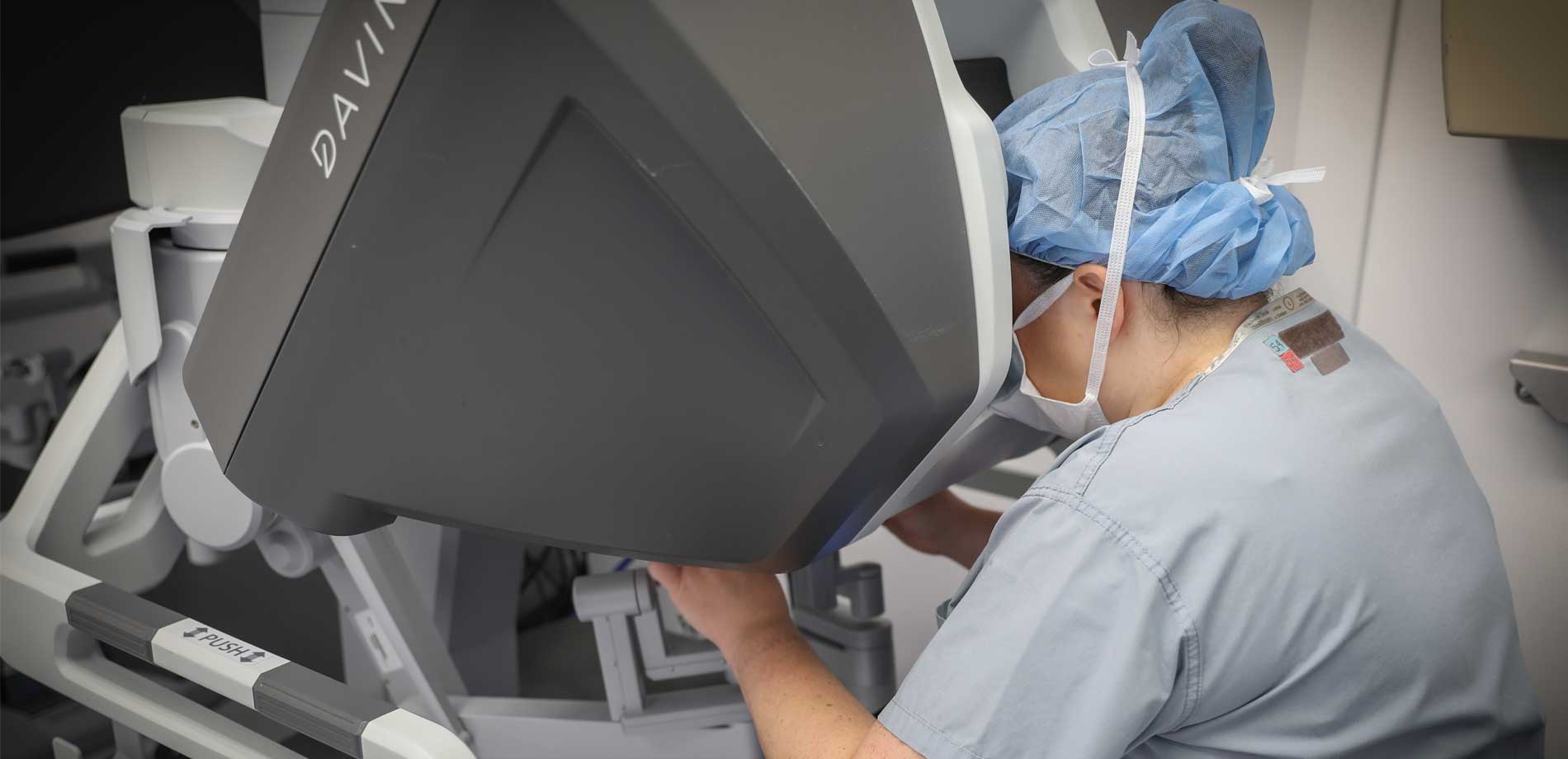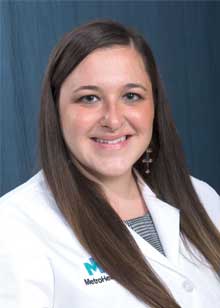Skeptical about robotic-assisted surgery? Here are some key facts about this state-of-the-art technology.
Contributed by Amelia N. Dorsey, MD |Surgery
In the five years Amelia Dorsey, MD, has been with MetroHealth, she’s done more than 400 robotic-assisted surgeries.
Far from being new or experimental, robotic-assisted surgery, or RAS, has been around since the late 1980s. It’s been tried and tested, refined, and improved. Surgeons from all specialties embrace this technology because of the benefits to patients.
The incisions are the same size as other minimally invasive techniques, like laparoscopic surgery. However, RAS gives surgeons more control and visibility, resulting in less bleeding, less pain, less scarring, and a faster recovery time. Patients typically leave the hospital within 3 days as opposed to 5 or more days.
It helps to think of the robotic instrument as an extra arm, with a wrist and tiny fingers, that is totally in the surgeon’s control. Surgeons can do much more with the robotic tool than they can with their hands alone.
“I am very much doing the surgery. It’s just that I use a fancy tool to do it,” Dr. Dorsey explains.
Robotic-assisted surgery is used to treat conditions that affect the bladder, digestive system, uterus, and more.
Some examples include:
- Bariatric (Gastric Bypass, Sleeve Gastrectomy)
- Colorectal (Colectomy, Hemicolectomy, Rectopexy)
- Digestive (Cholecystectomy, Hepatectomy, MALS, Pancreatectomy)
- Head and Neck (Laryngeal Cancer, Hypopharyngeal Cancer, Oropharyngeal Cancer, Thyroid)
- Hernia Repair
- Urologic (Nephrectomy, Prostatectomy, Pyeloplasty, Radical Cystectomy, Pyeloplasty, Vaginoplasty or Phalloplasty )
- Uterine (Hysterectomy, Myomectomy, Salpingo-Oophorectomy)
For bariatric surgery, the robotic approach has specific benefits.
- Lower rate of leak complications.
- Lower infection risk.
- Safer for patients with very high BMIs, whose size can make open surgery difficult and risky.
Surgery at MetroHealth
If you or a loved one needs surgery, talk to the surgeon to see if
robotic-assisted surgery is right for you.
MetroHealth’s compassionate surgeons provide advanced surgical techniques and technology to help you feel better and heal faster. To schedule an appointment or consultation, call 216-778-4391 or visit metrohealth.org/surgery












